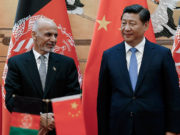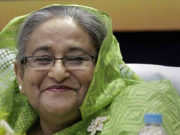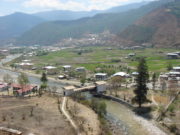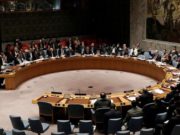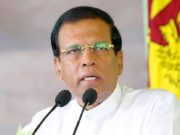The government in Nepal has made - Harnessing Investment Opportunities in Nepal - the title of the Investment summit, held on 2-3 March in Kathmandu, a big success with $13.52 billion investment pledges from seven countries. Which also indicates that the South Asian country is moving ahead on the path of economic prosperity. The Himalayan country had received largest pledge from China amounting to $8.3 billion.
More than 200 investors from 25 countries participated in the two-day summit, jointly organized by the Industry Ministry and Investment Board Nepal with an initial target to attract $1 billion of foreign direct investment (FDI).
Nepal needs huge investment in many areas like energy, infrastructure, tourism, agriculture, health and education, mines and cement industries to take the country forward.
Investors from China alone signed Letters of Intent with the government to inject $8.3 billion in different sectors. From China, six companies pledged investment.
Apart from this, investors from Bangladesh pledged $2.4 billion, from Japan and the United Kingdom signed ‘Letters of Intent’ to bring $1 billion investment each, while Sri Lankan and Indian investors pledged to invest $500 million and $317 million, respectively. In addition, Nepali businesspersons in India have shown interest to invest in Nepal in various sectors.
The figure of the investment pledges represents more than half of Nepal’s Gross Domestic Product (GDP). The country’s GDP was recorded approximately at $21 billion in the last fiscal year.
A Kathmandu Post editorial said, it was indicated that leaders must hold up to their promises to improve investment climate.
The editorial said, Nepal’s investment climate, despite government claims, is still not favourable for foreign investors. It takes three to 10 years for hydroelectric project developers to begin construction because of tiresome processes of acquiring different licences, conducting environmental impact assessments and pooling public and private land.
There are 42 different government agencies one has to pass through before acquiring any permission for making investments. Further, Nepal has failed to introduce a law to govern alternative investment, such as private equity and venture capital. Such bureaucratic hurdles must be cleared and such permissions must be narrowed down to just a few, possibly into one, if the country really wants to attract FDI.
A World Bank study says Nepal needs to invest up to $18 billion in energy, transport, telecommunications, and water and sanitation infrastructure by 2020 to remove binding constraints to economic growth. Without this money, Nepal may not be able to lay the groundwork to achieve the ambitious target of becoming a middle-income economy by 2030.
It is now time for all the political leaders and the government to remember what they committed to at the Investment Summit and walk the talk to raise the inflow of foreign investment into the country.




